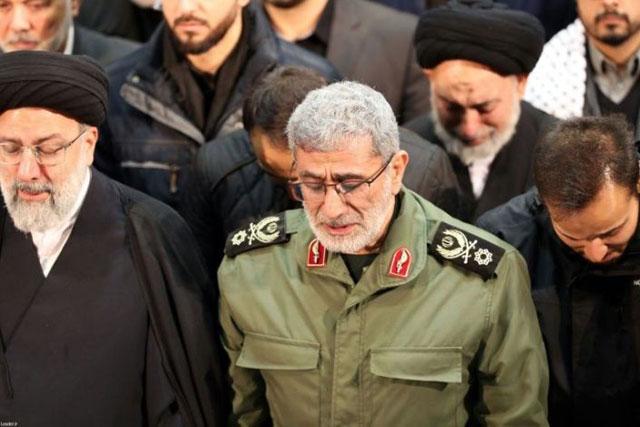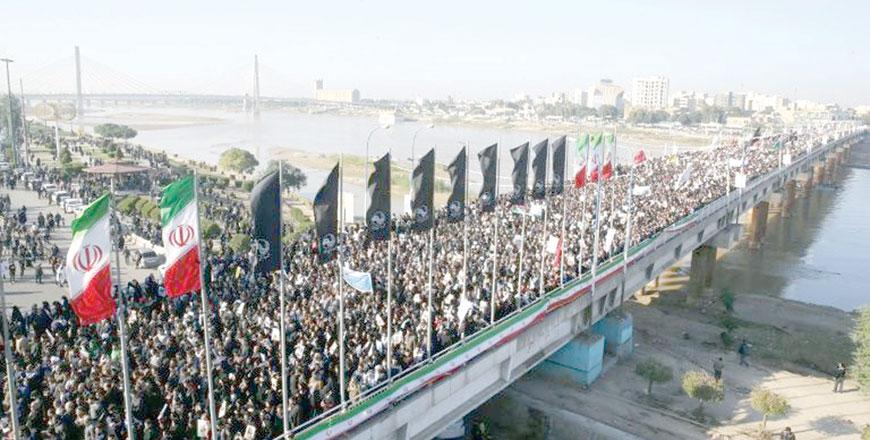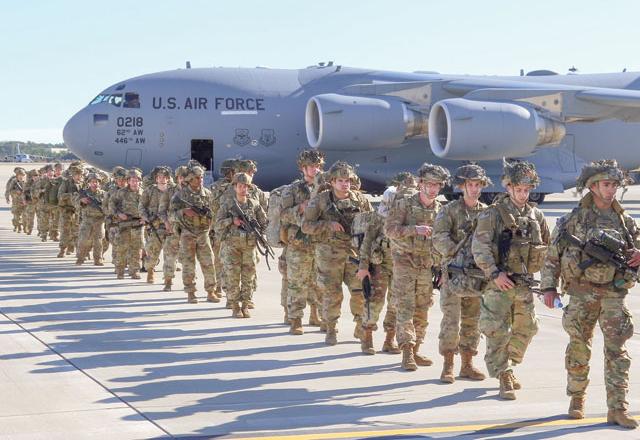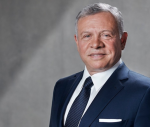You are here
Soleimani successor: Continuity figure in uncertain times
By AFP - Jan 08,2020 - Last updated at Jan 08,2020

Esmail Qaani (right) is the new commander of the shadowy Quds Force of Iran's Revolutionary Guards after the killing of Qassem Soleimani (AFP photo)
PARIS — Esmail Qaani, the new commander of the shadowy Quds Force of Iran's Revolutionary Guards after the killing of Qasem Soleimani, represents a continuity choice at a hugely combustible moment for Tehran but lacks the charismatic aura of his storied predecessor.
Qaani, formerly Quds Force deputy commander, was named by supreme leader Ayatollah Ali Khamenei in the immediate aftermath of the killing of Soleimani in an American strike that raised the risk of open conflict with the United States to unprecedented levels.
Appointing Qaani, Khamenei said the "orders remain exactly the same" for the Quds Force, part of the elite Revolutionary Guards and charged notably with its extraterritorial operations — making the force a key player in Iraq, Lebanon, Syria and Yemen.
Like Soleimani, who was hailed in Iran after his death as a martyr, Qaani is a veteran of the grinding 1980-1988 war with Iraq which dominated the early years of the Islamic republic after the ousting of the pro-US shah and still marks its political culture today.
"I think that in the short-[to]-medium term there will be some continuity. We'll hear a lot of harsh rhetoric, so as to keep awake the message of 'resistance'," said Annalisa Perteghella, research fellow at the Italian Institute for International Political Studies (IPSI).
'Uncharted territory'
But Qaani does not appear to share the charisma of Soleimani, who made a speciality of openly being photographed with fighters on the frontline and was seen by some as the de-facto number two in the country.
"Qaani does not have Soleimani's charisma, neither his understanding of the Arab Levant," said Perteghella. "So there could be changes and adjustments over the long term."
"But we're really entering uncharted territory," she told AFP.
Following the killing of Soleimani, tensions between Iran and the United States have reached a level unprecedented since the 1979-1981 Tehran US embassy hostage crisis that prompted a rupture in relations that has never healed.
Iran launched strikes early Wednesday against bases housing American troops in Iraq in retaliation for the killing, a riposte Khamenei described as a "slap in the face" for the US.
But analysts fear that more unconventional and asymmetrical attacks on US targets in the region may follow, a strategy that could involve the Quds Force.
The Quds Force has close contact with militias backed by Iran such as the Hizbollah group in Lebanon, or others in Iraq. In Yemen, it gives "moral support" to the Houthi rebels, according to the Revolutionary Guards.
It has been active on the ground in the Syria conflict as both Russia and Iran intervened to bolster Bashar Assad and is believed by analysts to have sustained significant losses.
'Personalities replaceable'
Thomas Flichy de La Neuville, chair of geopolitics at the Rennes School of Business, described Soleimani as someone with a "great power of persuasion and great psychological power".
Yet, analysts believe that four decades after the Islamic Revolution, institutions like the Revolutionary Guards have the structures in place to withstand even the loss of a major personality like Soleimani.
Soleimani "was in every sense replaceable; Iran is set up to be able to organise its operations of influence irrespective of the personalities", said Francois Heisbourg, special adviser at the Foundation for Strategic Research (FRS) in Paris.
Qaani, who joined the Revolutionary Guards as a young man at the onset of the Iran-Iraq war, is believed to have become deputy head of the Quds Force in the late 1990s, focusing more on operations in the east such as Afghanistan and Pakistan, while his boss Soleimani focused on Arab states in the Middle East.
Ali Alfoneh, senior fellow at the Arab Gulf States Institute in Washington, said there is likely "to be greater continuity than change in the Quds Force" under Qaani's leadership.
But he added: "It is difficult to expect Qaani, the bureaucrat, to emulate his predecessor's charismatic leadership," noting that Soleimani's decision to be the public face of the group and expose himself to danger had led to him being killed.
By Stuart Williams
Related Articles
TEHRAN — Black-clad mourners packed Iran's second city Mashhad on Sunday as the remains of top general Qassem Soleimani were paraded through
WASHINGTON — The United States on Thursday sanctioned Sohrab Soleimani, the brother of the commander of Iran's Revolutionary Guards, for his
BAGHDAD — Tens of thousands of Iraqis, many chanting "Death to America", on Saturday mourned a top Iranian commander and others killed in a

















